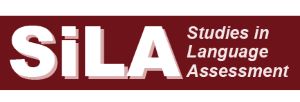Fairer for all: Teachers identifying and solving problems with the assessment of English language learners in the mainstream classroom
Rosemary Erlam, Waipapa Taumata Rau |University of Auckland
|
https://doi.org/10.58379/BVZR7301
|
Volume 12, Issue 2, 2023
|
Abstract: The emphasis in classroom-based assessment on assessment for learning means that the classroom teacher now bears greater responsibility for assessment (Malone, 2008). The success of any assessment process depends on the skill the teacher brings to classroom assessment and their ability to make decisions which are appropriate for their specific learners in their particular contexts (Hill, 2017). This paper focuses on three teachers who conducted an inquiry into an aspect of assessment practice in their teaching context. These inquiries are examined through two theoretical frameworks. The first uses Hill’s (2017) Teacher assessment literacy framework to illustrate how teachers’ reflections on the three dimensions of oning of assessment practices. The second uses the Assessment Use Argument which outlines the steps which need to be taken to justify or challenge the use of a given assessment. The paper documents the problems that these three teachers identified at different stages of this argument sequence. Through conducting these inquiries the teachers realized that specific assessments used in the mainstream classroom were not valid when used with English language learners (ELLs). They drew conclusions and proposed adaptations, thus demonstrating that teachers can make appropriate assessment decisions to ensure fairer outcomes for these learners in their local contexts.
Key words: teacher assessment literacy, Assessment Use Argument, validity, inquiry, fairness
